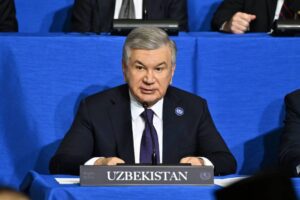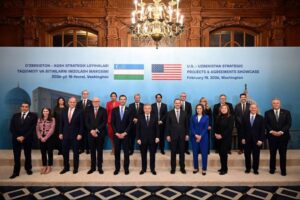Xi-Biden Icebreaker: A Ray of Hope

The international community waited nearly two years for the coming together of the characteristic American charm and traditional Chinese handshake. With mid-term concerns behind the US president, the two leaders hastened to meet on the first available opportunity — which arose thanks to the G-20 summit in Bali.
‘It is just great to see you,’ Biden said to Xi as he put an arm around Xi, adding that he was committed to keeping lines of communication open on a personal and governmental level. Both presidents expressed hope for getting the US-China relationship back on track.
There was a reiteration of their agreement that nuclear war should never be fought and can never be won and an underscoring of their opposition to the use or threat of use of nuclear weapons in Ukraine.
The talks came at a tense time for US-China relations, with ongoing acrimonious exchanges and differences of opinion over numerous issues ranging from trade to human rights abuses to interpretations of territorial sovereignty.
The Chinese side has, by and large, maintained dignified restraint. Beijing has refrained from public criticism of Russia’s war while stopping short of providing direct support such as supplying arms to Russia.
Pakistan cherishes its relationship with China as well as the US. The rift between the two has, at times, put Pakistan in a tight corner when it comes to taking certain positions. Maintaining good relations with both these superpowers is an important foreign policy objective of Pakistan — made much easier to pursue when there is consensus between the two. Pakistan has a lot to gain if the US-China relations are reset and cordiality replaces the currently prevailing tense atmosphere.
Besides just Pakistan, the international community as a whole is also likely to gain if these two giants manage to cool tempers and take a step back from uncalled-for perpetual brinkmanship and stop the slide towards a Neo-Cold War. Climate change, an unrestrained proliferation of weapons, impending global economic slowdown, and militarisation of outer space are just a few of the major challenges warranting the charting of collective and mutually acceptable strategies. If the US, China, and Russia do not initiate a course correction and continue to follow a discordant path, then there is little hope of effectively handling the mammoth challenges facing humanity.
In his opening remarks, Xi said the current state of China-US relations was not in the fundamental interests of the two countries and their people, and not what the international community expected. Xi called on Biden to ‘chart the right course’ and ‘elevate the relationship’. ‘As the leaders of our two nations, we share responsibility, in my view, to show that China and the United States can prevent competition from becoming anything ever near conflict, and to find ways to work together on urgent global issues that require our mutual cooperation,’ Biden said.
Biden said after the recent talks that he did not find Xi ‘more confrontational or more conciliatory’. ‘I found him the way he’s always been: Direct and straightforward…We were very blunt with one another about places where we disagreed or where we were uncertain of each other’s position,’ he said. Biden added he believed that ‘there need not be a new Cold War’. Xi stated, ‘China-US relations should not be a zero-sum game where you lose and I win, and you rise and I fall.’
Both sides had downplayed expectations that the meeting could be a reset of the fraught relationship. Biden said he was ‘not willing to make any fundamental concessions’. China’s foreign ministry said Beijing’s aims going into the encounter were to ‘advocate a correct way of coexistence between China and the United States, while firmly defending our own sovereignty, security and development interests’. Wang Yiwei, an international relations professor at the Renmin University of China, said the US wanted to set the agenda for China-US relations, but it needed China to put pressure on Russia and North Korea.
In a promising development following the meeting, statements issued by the respective offices of the two leaders communicated that the two leaders agreed to further discussions upon key issues and instructed their teams to promptly follow-up and implement steps arising from common understandings reached between them, and take concrete actions to put China-US relations back on the track of steady development. This may be considered a small but significant step toward stabilising what has become an increasingly apprehensive relationship. Even a modicum of trust and understanding between Biden and Xi could help defuse simmering global tensions.
Pakistan should avail this window of opportunity and strengthen its relevance to both China and the US by further building on the already existing and functional multiple streams of comprehensive bilateral relations with both countries. Pakistan should fast track the completion of CPEC projects and enhance bilateral cooperation with China about rolling over of loans and provision of additional loans on low interest rates. The US may be urged not to provide such technologies and munitions to India which accentuate already precarious balance of power with Pakistan. Moreover, effort may be made to negotiate Agreement 123 with the US to overcome Pakistan’s electricity shortage through generation electricity through nuclear power in an environmentally friendly way, as a stable and self-sufficient Pakistan is in the interests of both superpowers.


